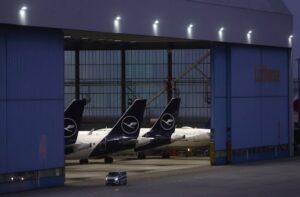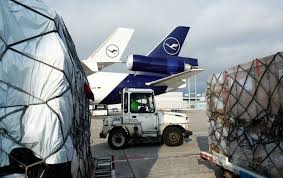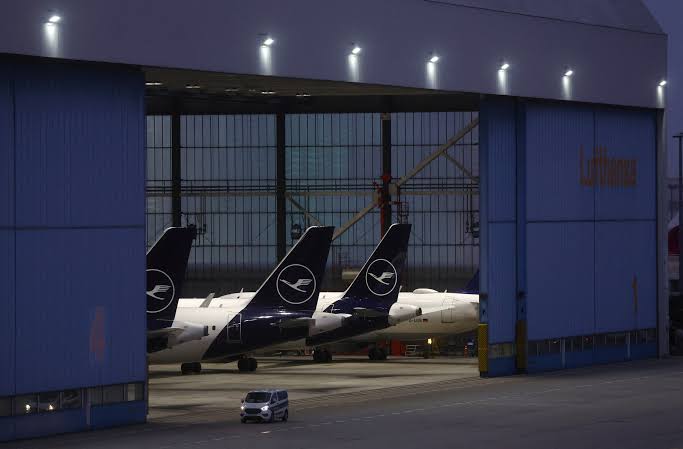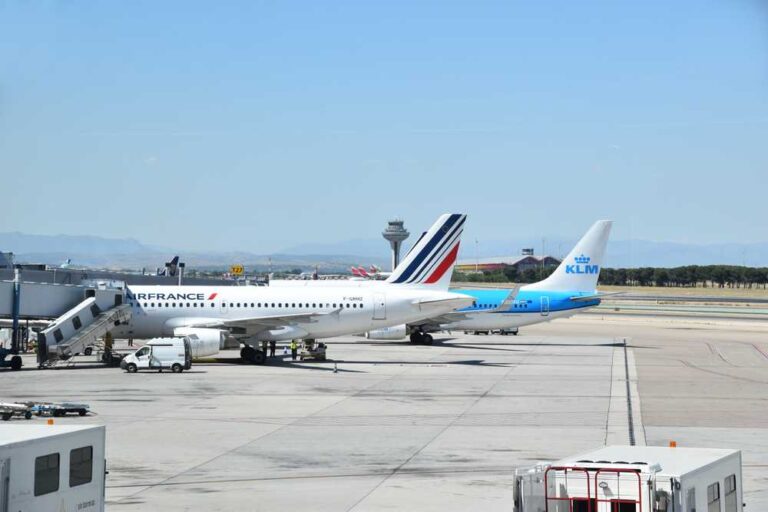Lufthansa air freight unit sees hike in drug shipments to the US
Introduction
Lufthansa Cargo, the air freight division of Germany’s flagship airline Lufthansa, has reported a significant increase in pharmaceutical shipments to the United States. This surge is driven by various factors, including rising demand for life-saving medications, advancements in biotechnology, and the expansion of global pharmaceutical supply chains.
As the world recovers from the COVID-19 pandemic, the pharmaceutical industry continues to play a vital role in healthcare innovation. Lufthansa Cargo’s ability to handle temperature-sensitive shipments efficiently has positioned it as a key player in the global pharma logistics market. This article explores the reasons behind the surge in drug shipments, the challenges of pharmaceutical logistics, and the future of air freight in the pharmaceutical sector.
The Rising Demand for Pharmaceutical Shipments
The increasing demand for pharmaceutical shipments to the US can be attributed to several key factors:

Growth of the Biotech Industry
The biotechnology industry in the US has been expanding rapidly, with new drugs and therapies being developed for conditions such as cancer, diabetes, and rare genetic diseases. Many of these drugs are produced in Europe and require efficient transportation to reach US markets.
Expansion of Clinical Trials
With more pharmaceutical companies conducting clinical trials globally, there is a higher need for the transportation of experimental drugs, biological samples, and medical supplies. Europe is a major hub for pharmaceutical research, and Lufthansa Cargo plays a crucial role in ensuring timely delivery of these sensitive shipments.
Cold Chain Logistics Improvements
Temperature-sensitive pharmaceuticals, including vaccines, insulin, and biologics, require specialized logistics solutions. Lufthansa Cargo has invested heavily in cold chain infrastructure, ensuring that drugs are transported under strict temperature controls to maintain their efficacy.
Regulatory Approvals and New Drug Launches
The US Food and Drug Administration (FDA) continues to approve new drugs at a record pace. Many of these medications originate from European pharmaceutical companies, driving the need for reliable air freight solutions.
The Aftermath of COVID-19
The pandemic reshaped global pharmaceutical supply chains, leading to increased investment in air freight to avoid disruptions. While COVID-19 vaccine distribution has slowed, the demand for other critical medications remains strong.
Lufthansa Cargo’s Role in Pharma Logistics
Lufthansa Cargo has long been a leader in the transportation of pharmaceuticals and healthcare products. Its specialized solutions, such as “Pharma Hub Frankfurt” and the “Cool Center”, have enhanced its ability to handle temperature-sensitive shipments with precision.
Pharma Hub Frankfurt
Frankfurt Airport serves as Lufthansa Cargo’s main hub for pharmaceutical logistics. The airport has a state-of-the-art cold chain facility that enables the seamless transfer of pharmaceuticals from Europe to the US. Key features of this hub include:

Dedicated Temperature-Controlled Storage: Lufthansa Cargo offers storage facilities for pharmaceuticals at +2°C to +8°C (cold storage) and +15°C to +25°C (controlled room temperature), ensuring that sensitive medications remain stable.
Pharmaceutical Handling Expertise: Trained personnel monitor shipments to comply with Good Distribution Practice (GDP) guidelines set by regulatory authorities.
Advanced Monitoring and Tracking: Lufthansa Cargo uses cutting-edge tracking systems to provide real-time updates on temperature and location, reducing the risk of spoilage.
The Lufthansa Cool Center
Lufthansa’s Cool Center in Frankfurt is one of the largest temperature-controlled air freight facilities in the world. It offers:
4,500 square meters of dedicated cooling space
24/7 monitoring to ensure precise temperature control
Specialized handling for vaccines, biologics, and other high-value pharmaceuticals
This facility has helped Lufthansa Cargo position itself as a leader in pharmaceutical logistics, catering to the growing demand for reliable and efficient drug transportation.
Challenges in Air Freight for Pharmaceuticals
While Lufthansa Cargo has developed robust solutions for pharmaceutical shipments, the industry still faces several challenges:
1. Stringent Regulatory Requirements
Pharmaceutical logistics must comply with strict regulations from agencies such as the FDA, the European Medicines Agency (EMA), and the International Air Transport Association (IATA). Ensuring compliance with GDP standards is essential to maintaining product integrity.
2. Cold Chain Failures
Temperature deviations during transit can render a drug ineffective, leading to financial losses and risks to patient health. Lufthansa Cargo has invested in temperature-controlled containers and advanced monitoring systems, but maintaining seamless cold chain logistics remains a challenge.
3. Capacity Constraints and Rising Costs
With increased demand for air cargo space, pharmaceutical companies face rising costs for transportation. Additionally, disruptions in global supply chains, such as fuel price fluctuations and geopolitical tensions, can impact the availability and affordability of air freight services.
4. Risk of Delays and Supply Chain Disruptions
Pharmaceutical shipments often operate on tight delivery schedules, and delays due to customs clearance, weather disruptions, or airport congestion can affect timely delivery. Lufthansa Cargo has streamlined its operations, but unexpected disruptions remain a concern.
Innovations in Pharmaceutical Air Freight
To address these challenges and meet the rising demand, Lufthansa Cargo and the broader air freight industry are investing in several innovations:
1. Digitalization and AI-Driven Monitoring
Lufthansa Cargo has implemented AI-driven tracking and monitoring systems that provide real-time insights into shipment conditions. This allows pharmaceutical companies to take immediate action if temperature deviations or delays occur.
2. Sustainable Air Freight Solutions
With increasing focus on sustainability, Lufthansa Cargo is investing in eco-friendly logistics solutions. The company has introduced:
Fuel-efficient aircraft such as the Boeing 777F, which reduces carbon emissions.
Sustainable Aviation Fuel (SAF) to lower the environmental impact of pharmaceutical shipments.
Optimization of flight routes to minimize fuel consumption.
3. Advanced Packaging Solutions
To enhance the reliability of pharmaceutical shipments, Lufthansa Cargo is collaborating with packaging companies to develop high-performance thermal containers that offer extended temperature stability.
4. Blockchain for Supply Chain Transparency
Lufthansa Cargo is exploring blockchain technology to improve supply chain visibility and reduce the risk of counterfeit drugs entering the market. This technology allows stakeholders to track shipments securely from manufacturer to final destination.
The Future of Pharma Air Freight
As demand for pharmaceutical air freight continues to grow, Lufthansa Cargo is expected to play a crucial role in shaping the future of global drug distribution. Key trends to watch include:
1. Expansion of Pharma Logistics Hubs
Lufthansa Cargo may expand its cold chain facilities beyond Frankfurt to other strategic locations in Europe and North America to enhance efficiency.
2. Increased Use of Automation
Automation in cargo handling and warehouse operations will further improve efficiency and reduce the risk of human error in pharmaceutical logistics.
3. Growth of Personalized Medicine Shipments
With the rise of gene therapies and personalized medicine, Lufthansa Cargo will need to develop even more specialized solutions for individualized drug shipments, which often require ultra-cold storage.
4. Strengthening US-Europe Pharmaceutical Trade Relations
The transatlantic pharmaceutical trade is expected to grow, leading to stronger partnerships between European drug manufacturers and US healthcare providers. Lufthansa Cargo will continue to be a vital link in this supply chain.
Conclusion
Lufthansa Cargo’s surge in pharmaceutical shipments to the US reflects the growing demand for high-quality logistics solutions in the healthcare sector. With cutting-edge cold chain facilities, advanced tracking systems, and a commitment to sustainability, Lufthansa Cargo has positioned itself as a leader in pharmaceutical air freight.
Despite challenges such as regulatory complexities and supply chain disruptions, the company’s investments in innovation and digitalization are expected to enhance its ability to transport life-saving medications efficiently. As the pharmaceutical industry evolves, Lufthansa Cargo will remain a key player in ensuring that critical medicines reach patients in the US and beyond.






